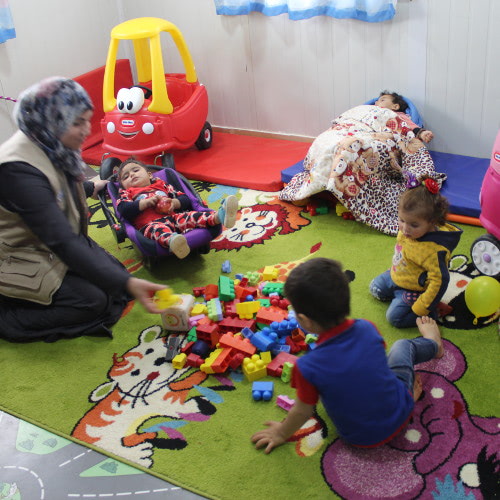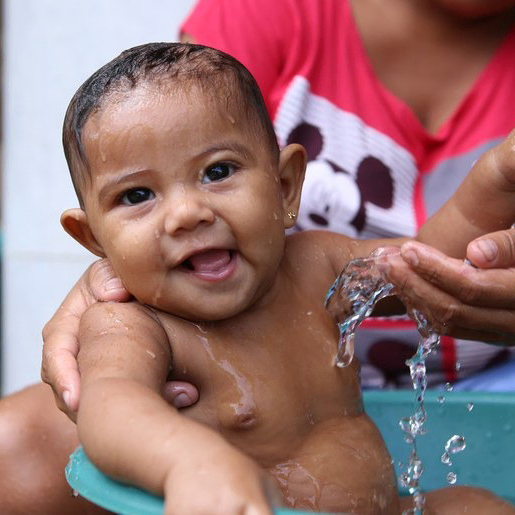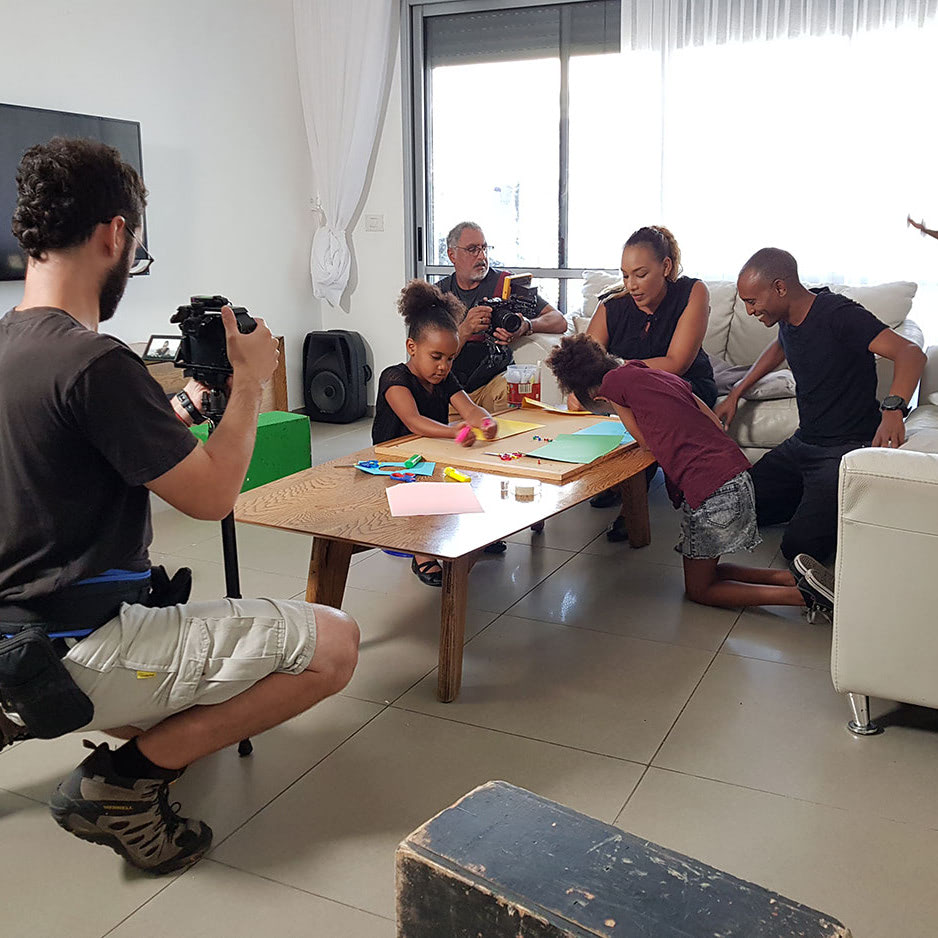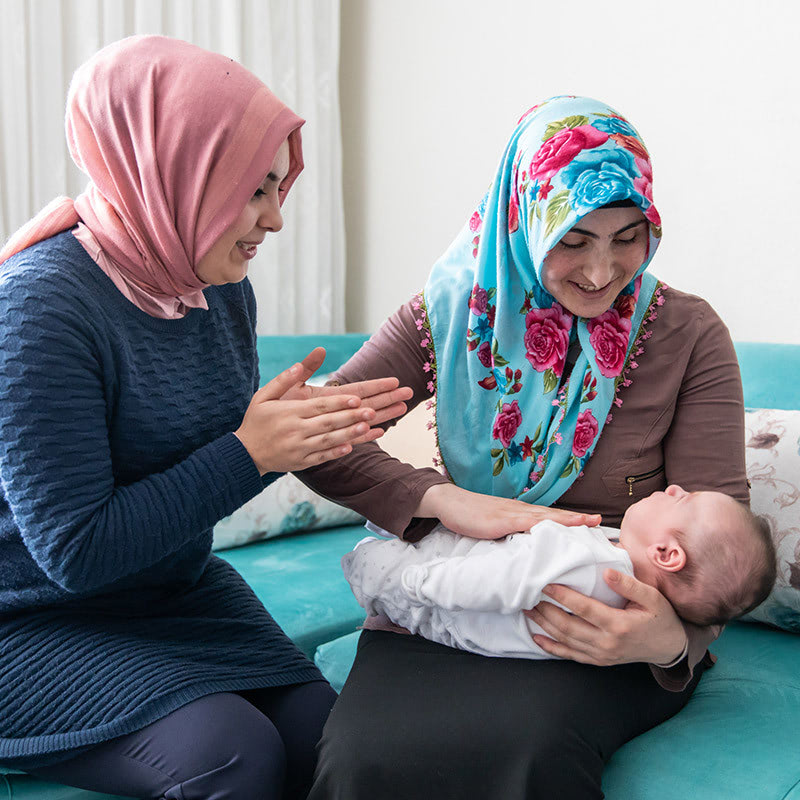In 2017, the MacArthur Foundation awarded a USD 100 million grant to Sesame Workshop and the IRC for joint work in Syria, Iraq, Jordan and Lebanon. This created an exciting opportunity to use the learning from home visiting and multimedia pilots we had already funded to inform the effort to take these programmes to scale. Over five years, the aim is to reach 9.4 million children via mass media, and 1.5 million through home-based and centre-based direct services.
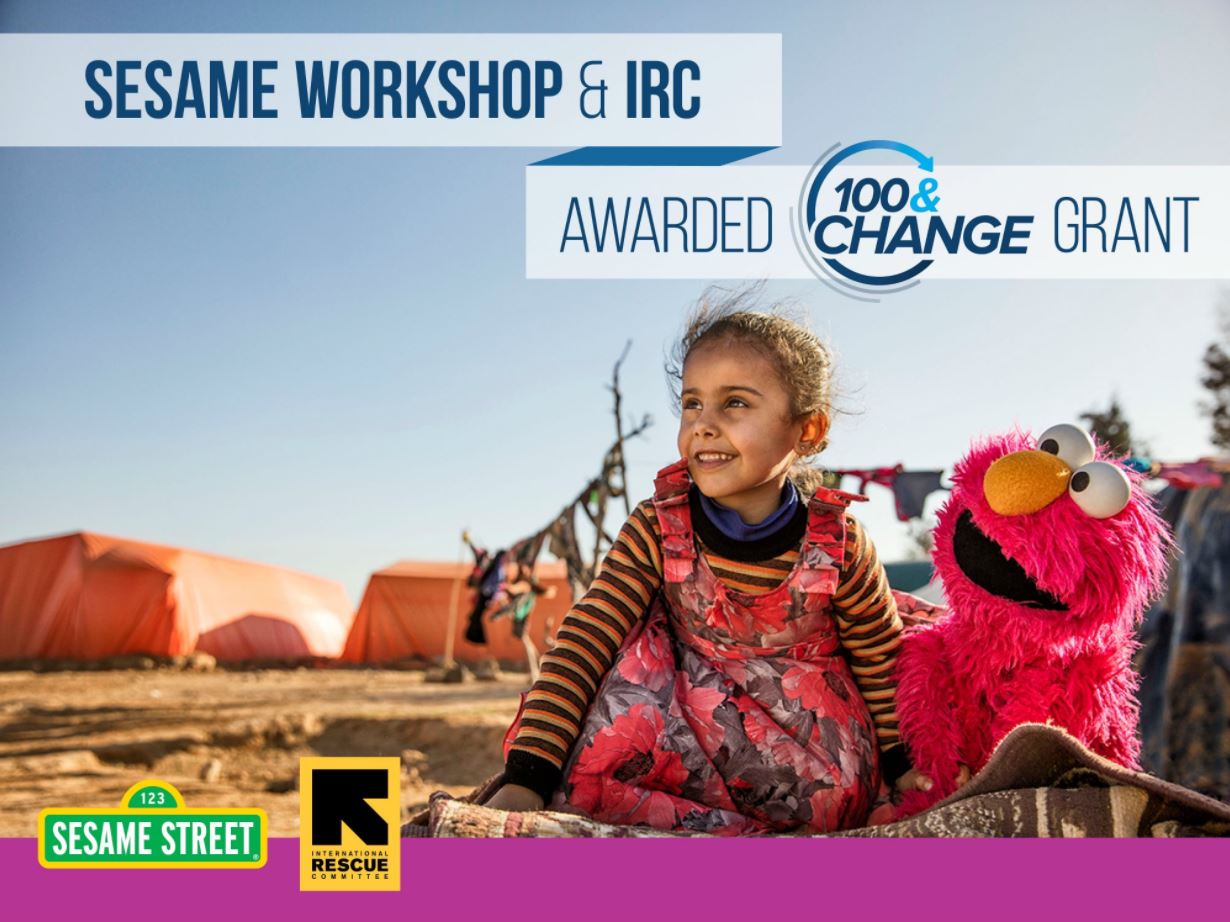
Considering young children’s needs in humanitarian response
Young children are commonly overlooked in humanitarian responses to crisis situations. Millions are at risk of not realising their development potential, as prolonged exposure to violence and stress has potentially long-lasting impacts on their health, learning and well-being. Yet much is known about how to build the resilience of these children and get them back on track.
While quantitative evaluations are still underway, home visitors in one programme being trialled – based on the Reach Up and Learn methodology – have anecdotally reported being surprised by how welcoming parents have been, as the home visiting concept was culturally new. The mother of one three-year-old boy, Mohamad, comments:
“Before, Mohamad could not form a two-word sentence and was very reserved around new people. Now he is more accepting of other people and enjoys interacting with them.”
Moving Minds Alliance advocacy complements pilot projects
In June 2018 we helped to launch the Moving Minds Alliance, a network of funders dedicated to scaling-up coverage, quality and financing for programmes that support families to rebuild their resilience and foster the well-being and development of their young children. The alliance includes Open Society Foundations, ELMA Philanthropies, Comic Relief, Vitol Foundation and Jacobs Foundation.
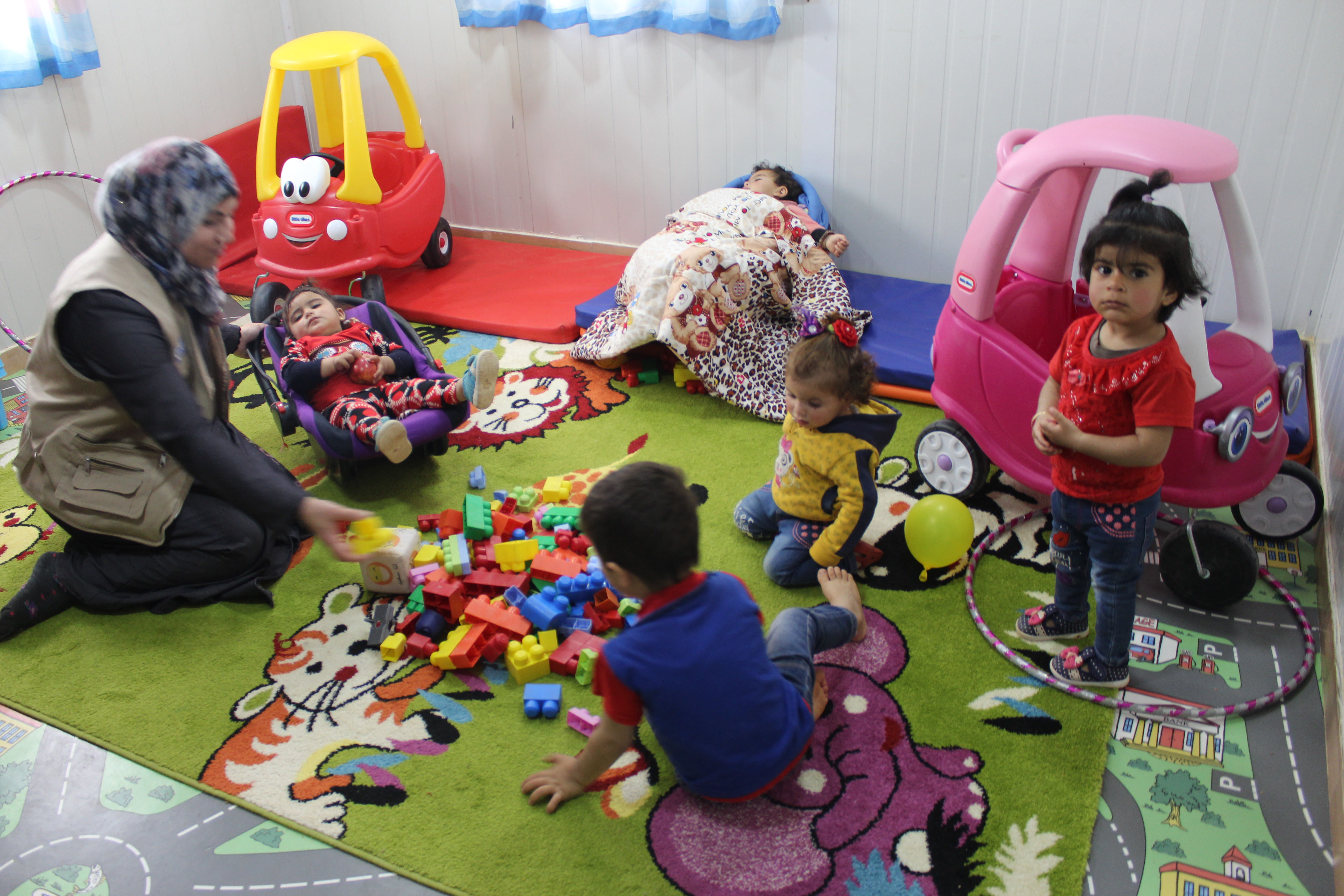
Photo: Reem AlZumi/Plan International Jordan
As well as the Reach Up-based home visiting model, we are exploring other approaches including working with mother-and-child centres and programmes supporting parents’ mental health. The broader goal is to create a model that can be adapted for humanitarian crises throughout the world.
Katie Murphy, the IRC’s Senior Technical Advisor in Early Childhood Development, says:
‘Support from the Bernard van Leer Foundation was instrumental in the inception phase of our partnership with Sesame and in the piloting of parenting programmes within the region – work that served as the foundation of our proposal and ultimately helped position us to win the MacArthur grant.’
